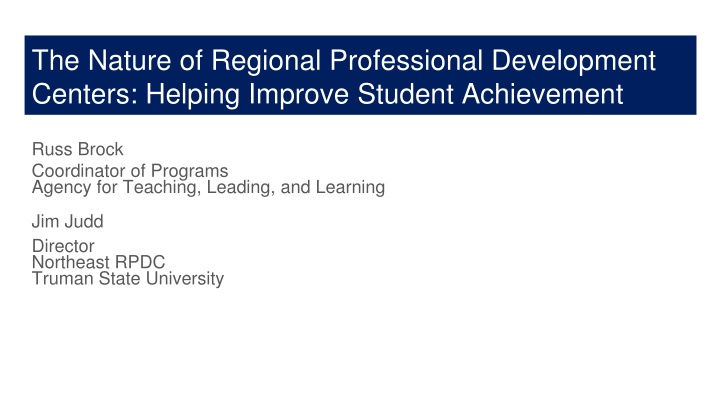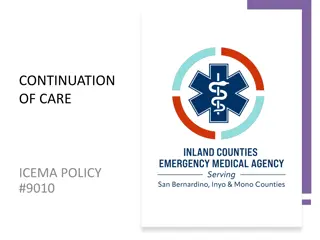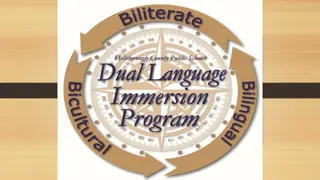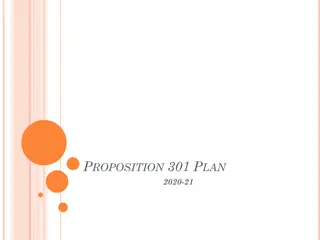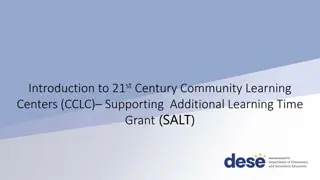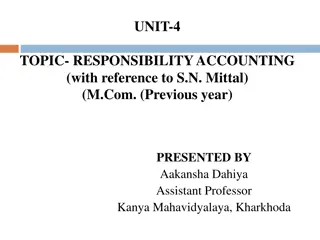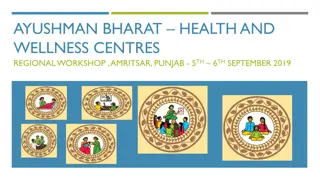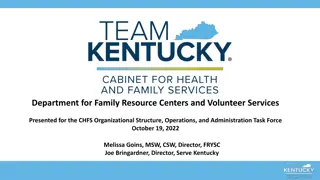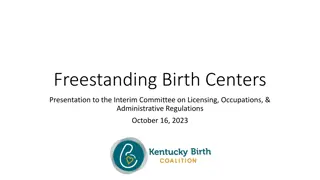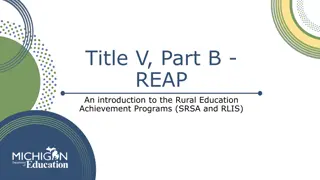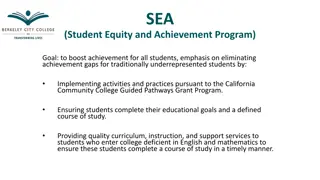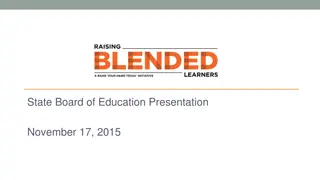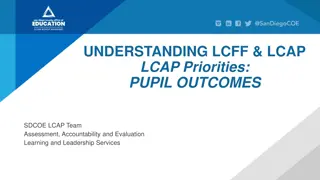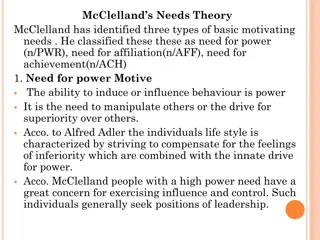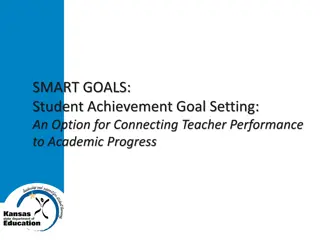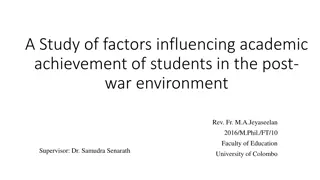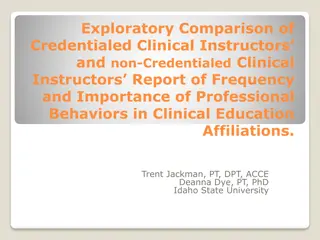Enhancing Student Achievement Through Professional Development Centers
Regional Professional Development Centers play a crucial role in improving student achievement by providing ongoing professional development opportunities for educators. Dr. John Hattie's research highlights the effectiveness of collective teacher efficacy, self-reported grades, and instructional quality in positively impacting student outcomes. These evidence-based best practices emphasize the importance of continuous growth and learning in the education profession.
Download Presentation

Please find below an Image/Link to download the presentation.
The content on the website is provided AS IS for your information and personal use only. It may not be sold, licensed, or shared on other websites without obtaining consent from the author.If you encounter any issues during the download, it is possible that the publisher has removed the file from their server.
You are allowed to download the files provided on this website for personal or commercial use, subject to the condition that they are used lawfully. All files are the property of their respective owners.
The content on the website is provided AS IS for your information and personal use only. It may not be sold, licensed, or shared on other websites without obtaining consent from the author.
E N D
Presentation Transcript
The Nature of Regional Professional Development Centers: Helping Improve Student Achievement Russ Brock Coordinator of Programs Agency for Teaching, Leading, and Learning Jim Judd Director Northeast RPDC Truman State University
The Value of Ongoing Professional Development Educator preparation programs cannot prepare educators for everything they will encounter during their career New techniques, strategies, methods, and systems are being developed and researched The educational landscape changes over time and educators need to stay current Teachers and administrators both need to grow in the profession
Dr. John Hatties Research Completed a meta analysis of 1000 research reviews conducted on variables that impact student learning To date, his analysis includes over 50,000 studies involving 250 million students. He created an effectiveness scale and rated each variable according to the impact the variable had on student learning
Scale of Effective Practices - Dr. John Hattie .40 is equal to one years growth over one year of time
Research-Based Best Practice - Dr. John Hattie Teachers shared belief that through collective action, they can positively influence student outcomes, including impacting those who are disengaged and/or disadvantaged. 1.57 effect size Collective Teacher Efficacy
Research-Based Best Practice - Dr. John Hattie Self-Reported Grades Students knowing about their chance of success Awareness of what they know about a subject 1.33 effect size
Research-Based Best Practice - Dr. John Hattie Instructional Quality Teachers ability to identify essential representations of subject Guiding learning through classroom interactions Monitoring learning and providing feedback Influence student outcomes 1.00 effect size
Research-Based Best Practice - Dr. John Hattie You had the child for a year, and you failed, now you re going to give him the same kind of curriculum, the same kind of strategies -0.17 effect size What that kid needs is not more, he needs different. - John Hattie Retention
Research-Based Best Practice - Dr. John Hattie The problem with tracking is the expectations it sets for kids. It says to them very clearly, this is where you perform... 0.12 effect size Quite often teachers only teach material that is relative to that tracking. - John Hattie Ability Grouping
Research-Based Best Practice - Dr. John Hattie If you are going to reduce class size, the first thing we have to do is change how we teach. - John Hattie .21 effect size Class Size
Regional Professional Development Centers Region 1 Cape Girardeau Southeast Missouri State University Region 2 Columbia University of Missouri Region 3 Kansas City University of Missouri, Kansas City Region 4 Kirksville Truman State University Region 5 Maryville Northwest Missouri State University Region 6 Rolla University of Missouri, S & T Region 7 Springfield Missouri State University Region 8 St. Louis Ed Plus Region 9 Warrensburg University of Central Missouri
RPDC Programs and Services The RPDC s provide training, mentoring, observation, feedback, coaching, and support across a wide spectrum of programs and services. Some of the work RPDC s do with school districts is free or at a low cost. The Statewide Mission of the RPDC s is to build the capacity of educators through high quality professional learning to maximize student success. Specific programs and services available are as follows:
Special Needs Students Special Education Compliance works with teachers and administrators to assist them in complying with all special education laws. Special Education Improvement works with teachers and administrators to assist them with improving the quality of their special education services. Blindness Skills works with teachers and administrators to assist them in providing services to visually impaired students. ELL/Migrant works with teachers and administrators to assist them in providing services to students who qualify for Migrant and English Language Learner services.
Addressing student behavior issues Positive Behavior Interventions and Support (PBIS) Works with schools to implement the PBIS system to address student behavior issues. By reducing the number of office referrals and discipline issues, students are more focused on learning and the result is increased student achievement.
Career Focused Efforts Career Advisor works with school counselors and teachers to improve the quality of the Individual Career and Academic Plans for middle and high school students. Career Pathways Regional Consultant works with schools, career centers, and local employers to increase student opportunities for job shadowing, internships, externships, and workplace experiences to help prepare them for employment opportunities after high school.
Missouri Model Districts Missouri Model Districts (MMD) is a pilot program that began last year and involves training and assisting school districts in identifying and implementing effective teaching practices, using common formative assessments to evaluate results on an ongoing basis and making decisions based on that data. The main components of MMD work include Collaborative Teams, Data-Based Decision Making, Common Formative Assessments, Effective Teaching and Learning Practices, School-Based Implementation Coaching, and Leadership. The goal is to implement this in every school in the district.
Missouri Leadership Development System MLDS provides training for principals and assistant principals from their first year until retirement Assigns mentors for principals in their first and second years
Teacher Development Beginning Teacher Assistance Program (BTAP) Mentor/Mentee training Teacher Academy Professional Development Committee training
Dyslexia Training State Mandated Dyslexia and Related Disorders Training 2 hours Techniques and Strategies in serving students with dyslexia
Content Area Specific Training Standards Curriculum Development Assessment Development Horizontal and Vertical Alignment STEM/STEAM
Other training and support Technology Integration Project Based Learning Cognitive Coaching Adaptive Schools Instructional practices Becoming a Trauma Informed School Effects of Poverty on Learning
Observation/Feedback/Coaching Effective implementation of any initiative begins with training but should also include observation, feedback, and coaching. RPDC consultants are uniquely qualified and available to observe the implementation of teaching practices and provide valuable feedback and coaching Many implementation efforts struggle or fail due to a lack of support during the implementation process
Regional Connections and Networking RPDC s, through training, workshops, and cohort groups, connect teachers and administrators from different schools and provide opportunities for valuable networking to occur. Teachers and administrators benefit when connecting with their peers from other schools by learning from each other.
RPDC Consultants Former Teachers, and Administrators Many are retired from public education with several years of experience Well trained in all areas where services are provided Continue to receive training each year
Contact Information Russ Brock Agency for Teaching, Leading, and Learning Missouri State University rbrock@missouristate.edu 417-836-4092 Jim Judd Northeast RPDC Truman State University judd@truman.edu 660-785-4310 Questions?
